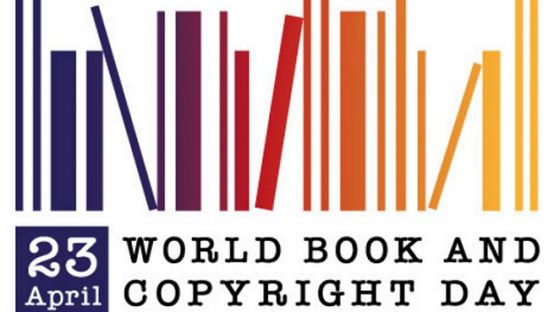2019 WORLD BOOK AND COPYRIGHT DAY

“We can achieve more as ONE voice speaking through different organisations but with One central purpose and message – to revitalize the African book industry through having National Book Policies in all the countries” – Dr. Nkem Osuigwe
Today, the World observes World Book and Copyright Day, a special day set aside by United Nations Educational, Scientific and Cultural Organization (UNESCO) to promote reading, publishing, and copyright. April 23, also marks the date on which several prominent authors, William Shakespeare, Miguel Cervantes and Inca Garcilaso de la Vega, all died.
As the 24th edition of World Book and Copyright Day is celebrated today, cogent issues deserve a second, third and even more deeper look and attention. In many African countries today, the supply of books at reasonable and affordable prices is low. Local publishers and authors get pittances for their work while the book markets in the continent appear to favour foreign books. African booksellers tout books on Bestseller Lists compiled in New York and other places. African Books in Print and other media is not compiled. On the other hand, many books written by our brothers and sisters have questionable quality and the reading culture remains low in Africa.
The digital revolution appears to be dealing with the African continent strangely as content in online spaces barely reflect and tell the stories of who we were, who we are and the places we are going to. All these affect the quality of education in the continent, the promotion of our societal values and the building of a strong cultural identity for young Africans.
The SDGs and the AU 2063 Agenda cannot be achieved in countries where literacy and learning are not promoted. Quality education cannot be attained only through formal education. It requires the availability of books and reading materials in different formats and especially indigenous languages for all ages anytime and anywhere such is needed. African countries will continue to lose out on imbuing her youth with the competitive edge needed today to get into the global workforce if it focuses only on ‘schooling’ as the education our young ones need to succeed in the 21st century.
What can be done?
One of the targets of African Union’s Continental Education Strategy for Africa (CESA) 2016-25 is to ‘develop policies that ensure a permanent, healthy and conducive learning environment in all sub-sectors and for all so as to expand access to quality education’. African countries need to develop National Book Policies which will set out coherent regulations and indicators that will guide the book industry – production, printing, publishing in print and digital format, dissemination and distribution of book materials and Readership promotions.
Piracy is a big threat to the book industry in Africa. The National Book Policy will spell out measures that will protect the rights of authors/creatives and make it unprofitable and uncomfortable for book piracy to continue thriving. The Policy will pave the way for the establishment of regulations or strengthen already existing ones that will boost literary creativity, readership promotions and the allocation of resources/incentives that can ensure a flourishing book industry. The Policy will also lay down the procedures for the collection of data in the book industry.
A synergy needs to be created among all the stakeholders in the book chain. The vibrancy of the book industry in any country depends on the well-being of each of the components of the book ecosystem as authors, content developers, printers, publishers, booksellers, libraries and readers as the end users of books and published materials in different formats all need one another to succeed.
How can it be done?
Building collaborations for advocacy and pressure groups is necessary. The components of the book chain cannot continue to operate in silos in different corners. A cursory look around today will show us booksellers, Librarians, publishers, authors and others all celebrating World Book and Copyright Day differently in their own corners with no particular focus on what needs to be done to get to where the industry is supposed to be. These individual efforts hardly make any impact. We can achieve more as ONE voice speaking through different organisations but with One central purpose and message – to revitalize the African book industry through having National Book Policies in all the countries.
When?
The time is now. This is the time to form collaborations with all sectors in the African book industry. The African Library and Information Associations and Institutions (AfLIA) is ready to work with African authors and creatives, publishers, printers, Booksellers etc. to ensure that a strong virile Book Industry is built in Africa.
Happy World Book and Copyright Day!!
About the Author
This post was authored by Nkem Osuigwe PhD CLN, Director, Human Capacity Development and Training, AfLIA. You can connect with Dr. Nkem on Facebook and Twitter.
Want to read more exciting stories and articles on African Library Vibes, click here: AFRICAN LIBRARY VIBES. If you want to learn how to contribute an interesting story or article to African Library Vibes? CLICK HERE TO CHECK OUT HOW TO DO SO.
